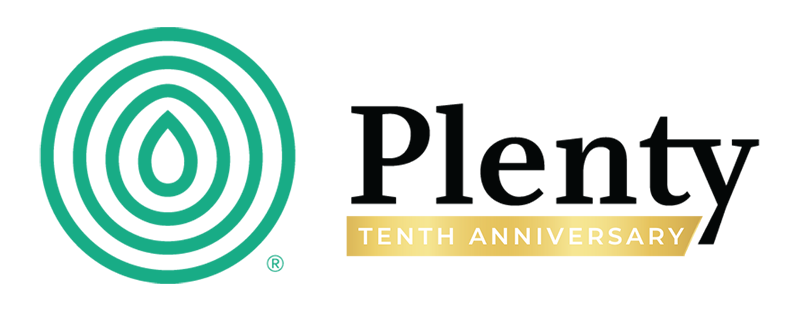Bringing Your Whole Self To Work
Nine months ago, I joined Plenty. We work hard to help nonprofits unlock the power of peer-to-peer by advising them on strategy, development, analytics, training, and implementation, but it’s more than just putting our noses to the grindstone. I know that one of my teammates had a root canal yesterday, his second since March, and I was genuinely worried about how much pain he’d be in today. I can scroll back through my email to see everyone’s best vacation photos from the summer, and I’m anxiously awaiting stories from my co-worker who is currently in the middle of a spontaneous trip to Ireland. These people and the work we do together matter to me.
I’ve gotten better, but I’ll admit that I’m still not the most open person on the team. However, my teammates definitely know just how much I needed the sunshine and barbecue of a girls trip to Nashville I recently took and how excited I am to introduce my boyfriend to my extended family for the Fourth of July. They know how fired up I get about our clients’ missions and the impact we help them make. And they know a many other things in between. But there are some things that - before last week - I just didn’t share. These are important things that contribute to who I am and how I see the world.
Why didn’t I share? It comes down to something that people don’t usually talk about in polite conversation: being the only person of color, or one of few, on a team sometimes creates distance, even in a group of open-minded, compassionate, incredible people like my teammates at Plenty.
For me, a lot of the distance came from not feeling like I could bring my whole self to work every day. Recently, I felt it after the massacre in Charleston. I remember sitting in my office, trying to concentrate on our morning team call, but all I could think about was the gruesome slaughter of nine innocent South Carolinians in the name of hatred toward people with brown skin - the same brown skin I have – and how it took my breath away and how I haven’t been able to regain it since.
I felt it last November when the cognitive dissonance set in as I stayed up all night, wide eyed and heavy-hearted, watching the city of Ferguson literally and figuratively burn itself to the ground after the grand jury made no recommendation of charges related to the death of Michael Brown.
I’ve felt it so many times in between. It was like living two separate lives. It was as if I had spent the night in the hospital with a broken leg and then had to walk without a cast the next day. Others may not see the pain, may not know it, but I’m really hurting. How could I not share that?
Really, how could I not share that? What do I owe my organization and team? What do I owe myself? What do I owe my commitment to leaving the world better than I found it by contributing my unique perspective and approach? The answers aren’t simple.
Before I spoke up, I spent a long time debating with myself whether it was unprofessional or uncouth for me to bring up this topic at all. Even in such an open work environment full of empathetic, socially conscious people, I wondered if it would be too taboo to share my thoughts and exasperation around the recent events. Would I be definitively crossing the metaphoric line drawn in the sand? I worried that the subject was too divisive even in an office full of emotionally intelligent, mature professionals. I was concerned that if I openly shared my concerns about what I see in the world, those in the group who have ideological views different from mine would think that I was “race-baiting” or being combative. I wondered if – subconsciously – my ideas would become less valuable and my judgment less worthy of trust after this conversation. Ultimately, I wondered if this would put the career I love in jeopardy.
Those are real concerns whenever the subject of race comes up. And it’s not about whether my team members are good people (they unequivocally are); it’s just what 27 years in my skin has taught me – tread lightly when it comes to talking about race.
After being so personally affected by what happened in Charleston and disappointed by what I believe was insufficient outrage in much of the social good space, I decided not to tread lightly and shared where my head was at on our weekly team call. And you may have already guessed, but the support I received from my team inspired me.
It inspired me to write this post and to pay that inspiration forward. For me, this is bigger than me sharing my views with my team. It’s about being authentic about the social problems we see and experience, tapping ourselves on the head when it comes to bringing out the best in each other, and holding each other accountable. We all have a stake in these conversations and we all have work to do.
Why should you care?
First and foremost, this conversation is an important one because, beyond us working in the social good sector, I believe we have an equally important human obligation here. What happened in Charleston is disgusting and appalling for all of us, regardless of racial or ethnic backgrounds, because this is our community. Our grandchildren will ask, “What did you do when that happened?” and I want to have an answer I can be proud of. We make it or we break it, in real time.
Second, this relates directly to the nonprofit and social good sector. As a space that’s committed to creating a better world, sometimes we’re too hesitant to acknowledge the challenges in the world as it currently is. And by not sharing the full extent of our experiences, we’re not benefiting from the range and depth of knowledge at our disposal. We’re missing an opportunity to understand and have compassion for the experiences of many of our constituents, the people we serve, and the people who roll up their sleeves with us to achieve our mission.
If anyone is going to talk about the tough things – like support of the LGBTQ community, religious understanding, the reality of racism in America, and national and global economic inequality – doesn’t it have to be us? We’re the sector charged with making the world better; it’s hard to imagine that we’ll get there if we aren’t honest about the shortcomings that we need to address as a national and global community. It’s also hard to imagine us addressing some of the social problems in our communities if we aren’t incorporating the best perspectives from inside and outside of the space, and creating environments where people can bring all of their life experience and hard won lessons to work to benefit these causes.
What can you do about it?
Make no mistake, I’m not saying that any of this is easy - for anyone. Rather, I’m saying these conversations are critical first steps for people to unlock one of the most important things they have to offer in work and in life – their perspective, shaped by their distinct life experiences.
Just because something is difficult doesn’t give us an excuse not to try. There’s always somewhere to start, however small that first step feels.
So how do we create an organizational culture where people can bring their whole selves? We begin by laying the groundwork.
Be purposeful about creating space for it. Do you have space in your organization or on your team for people to share what’s on their mind? An environment where they can share thoughts and concerns that go beyond weekend updates or what their task list looks like for the week? If not, it’s time to work with your team to make room for meaningful conversations on a weekly or bi-weekly basis. A time to discuss what they’ve learned recently, what opportunities they see in their work that they don’t feel like the organization is addressing, or how what’s happening in the world around them impacts their work and mission.
Make that space meaningful and lead by example. Open up. Share the thing that creates real distance from you and your team. Any one of us can do this, as leading by example is in the ordinary course of leadership, and leadership isn’t a title but a behavior. You don’t have to have the most impressive job description in the room to take on this role. Instead, you just have to care and be willing to take a risk by sharing. It’s like being the first to jump into a lake in early spring; most people want to get in but worry that it’ll be uncomfortable (too cold), so they want someone else to test the waters first. Be that person. Test the water. By leading the way, you can ensure that the open space is effective in giving people a chance to connect the deeper things on their mind and the 360-view of their life experiences with the work your organization does.
Foster management that aspires to understand. I’m fortunate to have a CEO who gets it and sets the tone accordingly for our organization. Unfortunately, that’s not always the case. As much as we need to tap ourselves on the head to start these conversations, in the workplace that’s often tempered by a manager’s openness to creating a culture where genuine conversations are promoted, and their comfort level with contributing to those conversations in constructive ways.
If you wouldn’t currently describe your management style that way, you have an opportunity to broach the subject and partner with your team to get there. Let’s be clear – the idea isn’t for you to share their precise views or already understand the complex social issues that you or your team would like to talk about; it’s about your willingness to participate and your genuine aspiration to understand the issues that are fundamental to who your team is, what matters to them, and how much of that they bring to work. Ultimately, though, not all managers and not all organizations will want to reroute the train to that destination. That’s okay. It’s also about knowing when it’s time to get off at the next station and switch to a different line.
At the end of the day, the good we’re working to create in the nonprofit sector is simply too important to have people in an organization do anything but bring their very best. Getting someone’s very best requires them to access the strange and unique combination of experiences that make them, well, them. In other words, bringing your best self to work requires bringing your whole self to work. And I’m bringing mine. Will you?
Culture is the oxygen of your organization. Create a culture that motivates, supports, and allows your team to grow.
Share this
You May Also Like
These Related Stories



Comments (2)